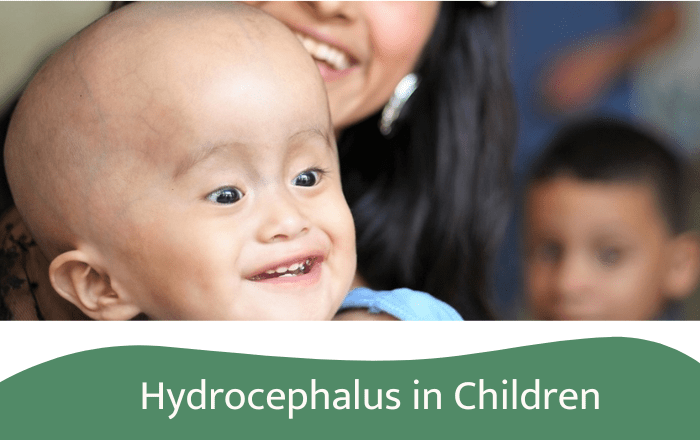As parents, ensuring your child’s health is always a top priority. If you’ve heard the term hydrocephalus and are looking for clear, easy-to-understand information, you’re in the right place. Hydrocephalus is a condition that affects the brain by causing an abnormal buildup of cerebrospinal fluid (CSF). This fluid surrounds and cushions the brain, but when it accumulates in excess, it leads to increased pressure inside the skull.
Hydrocephalus can occur in newborns, infants, and older children. Some children are born with it, while others develop it due to infections, injuries, or other medical conditions. Early detection and timely medical care can make a big difference in a child’s life. In this article, we will discuss the causes, symptoms, and treatment options available for hydrocephalus, along with practical tips for parents and caregivers.
What is Hydrocephalus?
Hydrocephalus is a condition where excess cerebrospinal fluid (CSF) builds up inside the brain’s ventricles (fluid-filled spaces). This leads to increased pressure on the brain, which can cause various developmental and neurological issues if not treated.
There are two main types of hydrocephalus in children:
- Congenital Hydrocephalus – Present at birth, often due to genetic factors or abnormalities in brain development.
- Acquired Hydrocephalus – Develops after birth due to infections, head injuries, tumors, or bleeding in the brain.
Causes of Hydrocephalus in Children
Hydrocephalus can be caused by several factors, including:
- Birth Defects – Some babies are born with structural abnormalities in the brain that prevent normal CSF flow. Conditions like spina bifida can increase the risk.
- Infections During Pregnancy or Early Childhood – Meningitis, encephalitis, or other infections can lead to inflammation, blocking CSF flow.
- Brain Bleeding (Intraventricular Hemorrhage) – Premature babies are more likely to experience bleeding in the brain, which can cause hydrocephalus.
- Brain Tumors or Cysts – These can block the normal flow of CSF, leading to fluid buildup.
- Traumatic Brain Injury – A head injury can cause bleeding or swelling, disrupting the drainage of CSF.
Understanding the cause of hydrocephalus is important for determining the right treatment approach.
Recognizing the Symptoms of Hydrocephalus
Symptoms of hydrocephalus can vary depending on the child’s age and how quickly the condition develops.
Symptoms in Infants (Birth to 1 Year Old):
- Unusual rapid head growth
- Bulging or tense soft spot (fontanelle) on the head
- Vomiting, irritability, or excessive sleepiness
- Difficulty feeding
- Eyes fixed downward (a condition known as “sunsetting”)
Symptoms in Toddlers and Older Children:
- Persistent headaches
- Nausea and vomiting
- Difficulty walking or balancing
- Poor coordination
- Developmental delays (trouble speaking, walking, or learning)
- Changes in personality or behavior
If you notice any of these signs in your child, it is important to see a doctor for further evaluation.
Diagnosis: How Doctors Identify Hydrocephalus
Doctors use several tests to diagnose hydrocephalus and determine its severity.
- Ultrasound – Often used for newborns and infants since their skulls are not fully developed.
- Magnetic Resonance Imaging (MRI) – Provides a detailed image of the brain and helps assess fluid buildup.
- Computed Tomography (CT) Scan – A quicker imaging test to check for enlarged ventricles.
- Lumbar Puncture (Spinal Tap) – In rare cases, doctors may analyze cerebrospinal fluid for infections or pressure abnormalities.
Early diagnosis allows for timely treatment, reducing the risk of long-term complications.
Modern Treatment Options for Hydrocephalus
Hydrocephalus is usually treated with surgery to relieve pressure on the brain and restore normal fluid flow. The two most common procedures are:
Hydrocephalus is usually treated with surgery to relieve pressure on the brain and restore normal fluid flow. The two most common procedures are:
1. Ventriculoperitoneal (VP) Shunt Surgery
- A shunt is a small tube placed in the brain to drain excess fluid into another part of the body, usually the abdomen.
- It helps regulate CSF levels and prevent further brain damage.
- Regular follow-ups are needed to ensure the shunt is working properly.
2. Endoscopic Third Ventriculostomy (ETV)
- A small hole is made in the brain to create a new pathway for CSF drainage.
- This procedure is usually recommended for children with specific types of hydrocephalus.
- Both treatments require monitoring to ensure long-term success.
Meet Dr. Harshal Agrawal – Pediatric (Child) Neurosurgeon in Thane
If your child has been diagnosed with hydrocephalus, seeking guidance from a qualified doctor is important. Dr. Harshal Agrawal, a pediatric neurosurgeon in Thane, has experience in treating children with hydrocephalus and other neurological conditions.
Dr. Agrawal provides clear diagnosis, treatment options, and ongoing care to ensure the best possible outcome for children. Parents looking for advice, diagnosis, or treatment can schedule a consultation with him.
For appointments, contact Dr. Harshal Agrawal’s clinic in Thane today.
FAQs About Hydrocephalus in Children
Q: What is the best age for hydrocephalus surgery?
There is no single best age; it depends on the child’s condition. Doctors determine the timing based on severity and symptoms.
Q: What are the risks of shunt surgery?
Shunt blockage, infection, or malfunction are possible risks. Regular checkups help address any issues early.
Q: How do I know if my child’s shunt is failing?
Signs include persistent headaches, vomiting, drowsiness, or changes in behavior. Immediate medical attention is needed if these symptoms appear.
Take the First Step in Your Child’s Health Journey
If you suspect your child has hydrocephalus or need professional guidance, reach out to Dr. Harshal Agrawal in Thane. Early diagnosis and treatment can greatly improve outcomes.
📞 Schedule an appointment today!

